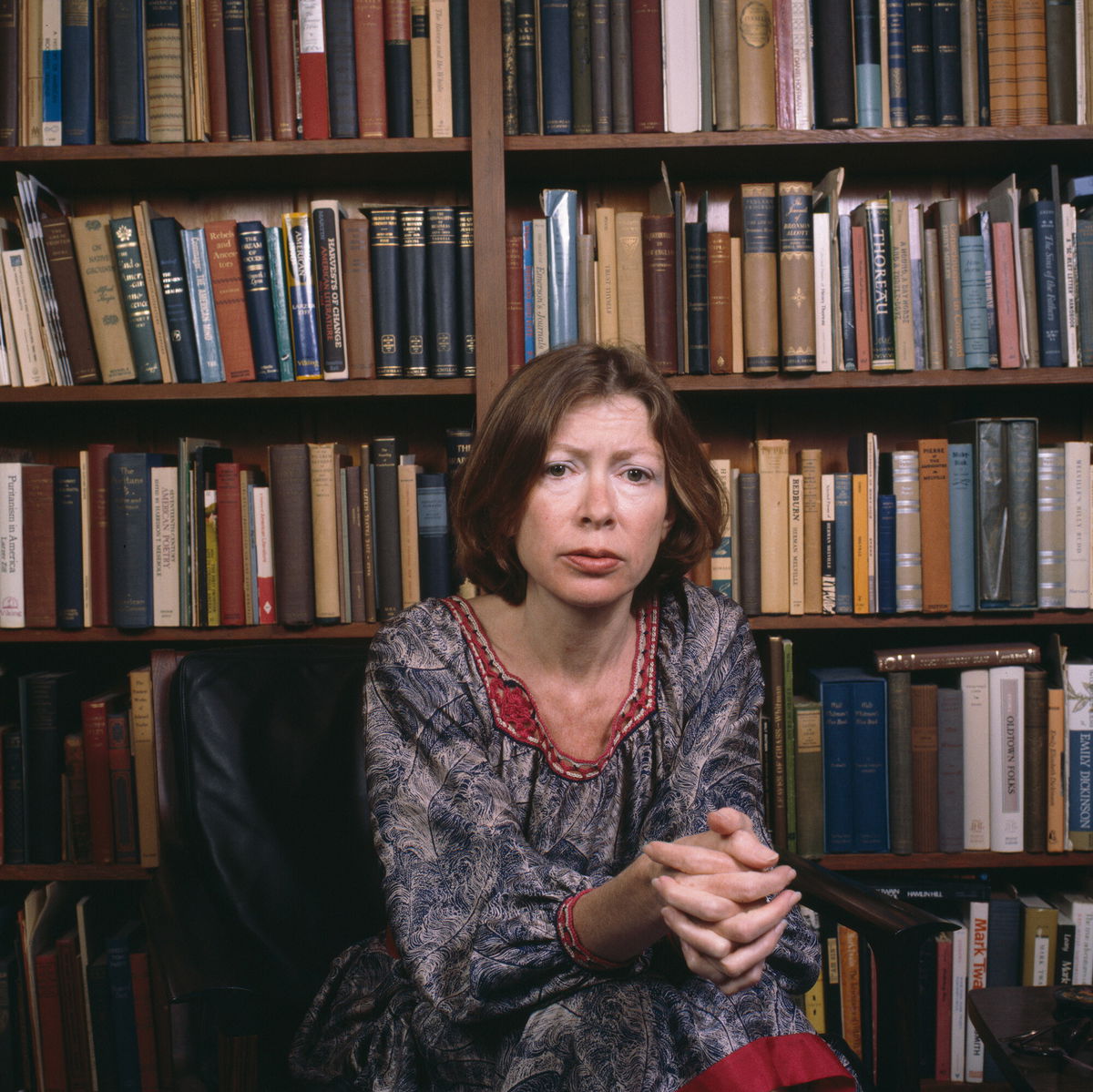Joan Didion, famed American essayist and novelist, has died

Famed American essayist and novelist Joan Didion
Jacqui Palumbo and Scottie Andrew, CNN
Acclaimed American writer Joan Didion, an essayist and novelist who rose to prominence in the 1960s, has died at age 87, her publisher confirmed to CNN on Thursday.
“We are deeply saddened to report that Joan Didion died earlier this morning at her home in New York due to complications from Parkinson’s disease,” said Paul Bogaards, a publicity executive at A. A. Knopf, in a statement.
Didion was a leading figure of the New Journalism movement in the 1960s and ’70s, and she began her career with articles in Life magazine and other publications, capturing the unrest of American life in the postwar era. During her prolific career, she published multiple volumes of essays, nonfiction books, memoirs, novels and screenplays.
She was known for her distinctive prose, and rose to fame with essay collections such as 1968’s “Slouching Towards Bethlehem” and 1979’s “The White Album.” Her memoir “The Year of Magical Thinking” won the National Book Award for Nonfiction in 2005. In 2013, former President Barack Obama awarded Didion the National Humanities Medal in the East Room of the White House, calling her “one of our sharpest and most respected observers of American politics and culture.”
For many, Didion’s writing was unparalleled. “Nobody writes better English prose than Joan Didion,” declared critic John Leonard in a review for “The White Album,” according to the New York Times. “Try to rearrange one of her sentences, and you’ve realized that the sentence was inevitable, a hologram.”
Despite her small stature, Didion was a giant within and beyond literary circles, with novelist Bret Easton Ellis once calling her “the writer who means the most to me.” Authors Eve Babitz and bell hooks also died recently, and in the wake of Didion’s death, acclaimed writer Roxanne Gay wrote on Twitter that it was “another staggering loss.”
California roots
A Sacramento native, Didion moved to New York after graduating from the University of California, Berkeley, and began working for Vogue, according to Bogaards.
While rising through the ranks at the fashion magazine, Didion met and married John Gregory Dunne, a journalist at Time with whom she’d collaborate on screenplays including “The Panic in Needle Park,” known for Al Pacino’s breakthrough performance, and the 1976 version of “A Star is Born,” starring Barbra Streisand and Kris Kristofferson.
Didion moved back and forth between California and New York during her career, and both states served as inspiration for her writings. Her 1967 essay “Goodbye to All That,” on why she was leaving New York, became an enduring influence on the essay format. The following year, she published “Slouching Through Bethlehem,” primarily set in California, which solidified her status as a keen chronicler of the intimate and the everyday.
“The White Album,” too, provided cutting insight into her home state, with its cooly removed yet searing depictions of West Coast counterculture, the Manson murders and the quick-shifting political landscape. The title essay was in 2013 named one of the 10 most important essays since 1950 by Publishers Weekly and begins with one of Didion’s best-known lines: “We tell ourselves stories in order to live.”
Didion was known for her effortless, minimal personal style as well as her incisive writings, and her fashion choices — long-sleeve knitwear, oversized sunglasses and shift dresses — have been extensively written about. At 80 years old, Didion was tapped by Phoebe Philo, who then helmed the French fashion house Céline, to star in a number of ads for the brand, photographed by Juergen Teller.
In 2014 Vogue’s Alessandra Codinha described Didion as “an immortal intellectual-and-otherwise dream girl,” presenting as evidence Didion’s own famously brief and precise packing list that consisted of little more than two skirts, a sweater and bourbon.
Examining grief
Didion’s personal life was marked by loss, and she examined grief extensively in her work. In 2003, Didion’s husband died from a heart attack while their daughter, Quintana Roo Dunne, was in the hospital, recovering from septic shock. Didion wrote about caring for her daughter while dealing with the death of her husband in 2005’s “The Year of Magical Thinking,” which in 2007 became a Broadway play starring Vanessa Redgrave.
“‘Year of Magical Thinking’ was the first book I can recall picking up to read with the intention of trying to understand grief,” said poet and writer Saeed Jones, in a tribute to Didion on Twitter. “It was so foreign to me then; it felt like Joan Didion (also foreign to me then) was explaining that my life bordered a country I hadn’t realized existed.”
Within two years of Didion’s husband’s death, her daughter died at 39 after years of illnesses and injuries. Didion chronicled her experience with grief once more in 2011’s “Blue Nights,” in which she also questioned her weaknesses as a mother.
In 2017, she reflected on her career and personal losses in the Netflix documentary “The Center Will not Hold,” directed by her nephew Griffin Dune. In it, she described how writing has always been a tool for her, saying, “I have always found that if I examine something, it’s less scary.”
In a tribute to Didion, her publisher A. A. Knopf posted on Instagram Didion’s musings on mortality from “The Year of Magical Thinking.”
“We are not idealized wild things,” she wrote. “We are imperfect mortal beings, aware of that mortality even as we push it away, failed by our very complication, so wired that when we mourn our losses we also mourn, for better or for worse, ourselves. As we were. As we are no longer. As we will one day not be at all.”
This story has been updated with additional details about Didion’s life and reaction to her death.
The-CNN-Wire
™ & © 2021 Cable News Network, Inc., a WarnerMedia Company. All rights reserved.
CNN’s Mirna Alsharif contributed to this story.